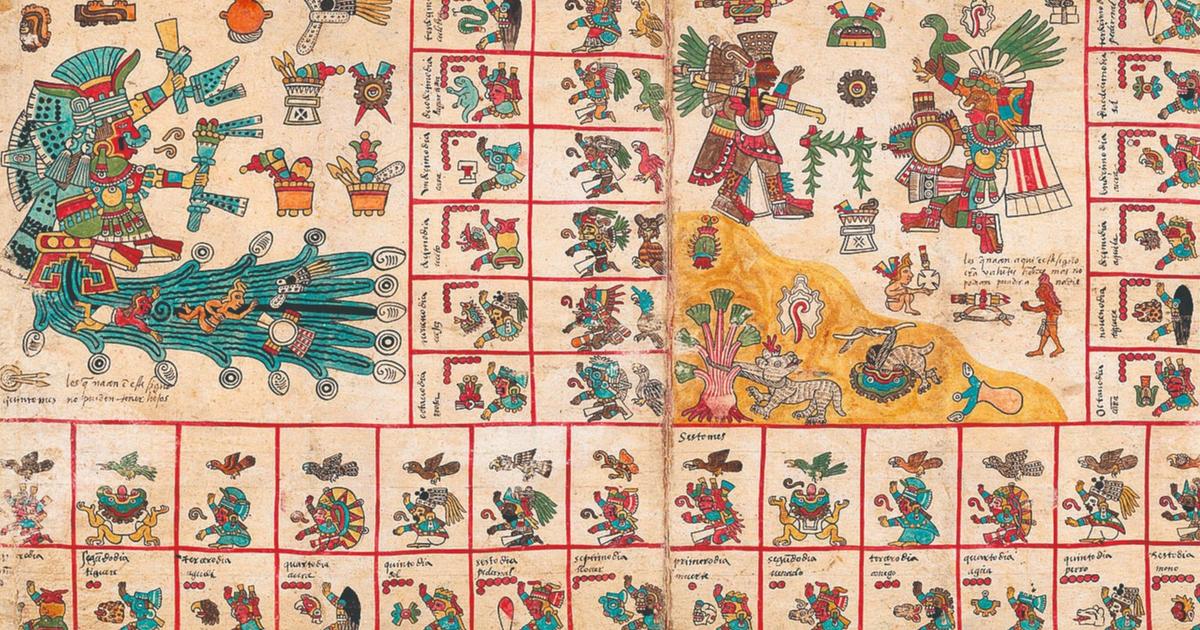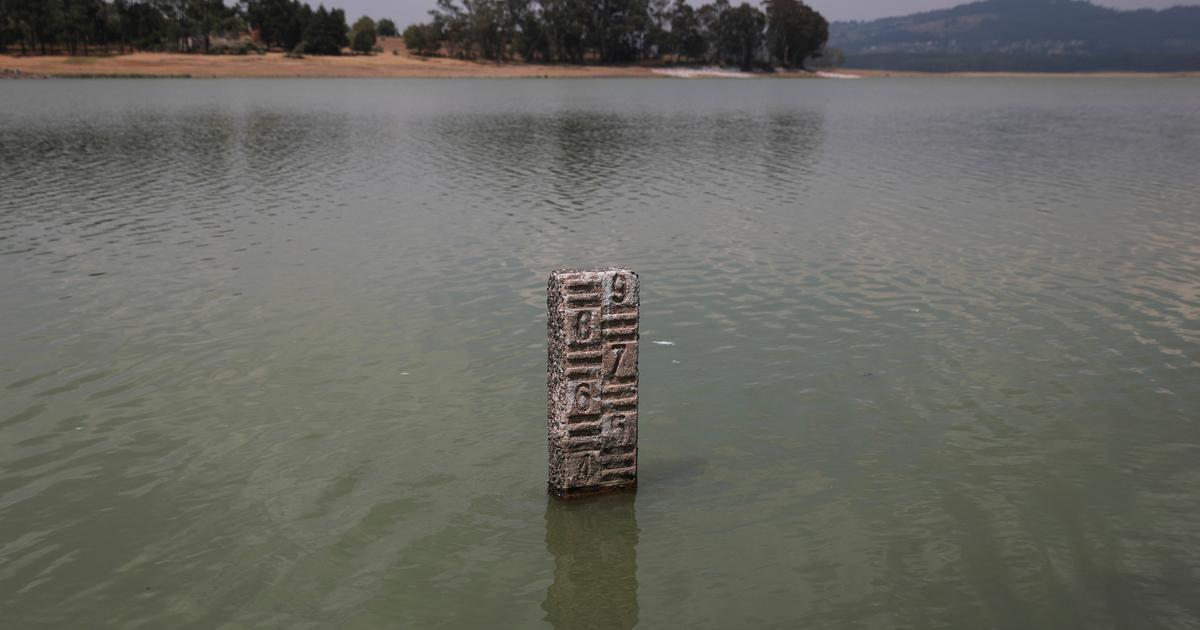Half a millennium ago, on August 13, 1521, one of the most important empires of the American continent fell: the Mexica, also known as the Aztec, led by the Emperor Moctezuma.
Hundreds of books have been written about the fall, but much is still unknown.
Was the winner of that day Hernán Cortés?
In reality, the Castilians only represented a dwarf percentage of the victorious army, and the real winners were the troops of indigenous groups allied to Cortés, such as the Tlaxcalans or Texcocanos.
What to call what happened then 500 years ago if it was not the victory of the Spanish Crown?
President Andrés Manuel López Obrador will commemorate the date this Friday as a story of indigenous resistance.
To delve into what happened 500 years ago, and what it represents for Mexico today, EL PAÍS offers some of the best interviews, columns and chronicles on the subject.
The Fall Review
Historians such as Federico Navarrete, Enrique Krauze, Guadalupe Jiménez Codinach, Martín Ríos Saloma and Tomás Pérez Vejo talk about how to remember what was transformed in 1521, and how to demolish myths that were formed after the fall of Tenochtitlan.
"El Moctezuma de Cortés is a Moctezuma who only serves the interests of Cortés, he is more like a literary character," says Navarrete.
Federico Navarrete: "There can be only forgiveness if there is no justice"
The history professor discusses the myths of the fall of Tenochtitlan 500 years ago and the events of President López Obrador's forgiveness of the indigenous peoples of Mexico.
Guadalupe Jiménez Codinach: "The mistreatment of indigenous people is not from 500 years ago, it is from now"
The academic defends that the liberal reforms of the 19th century initiate the "worst moment for indigenous communities"
Enrique Krauze: 'The conquest of Mexico: a pending commemoration'
"Today the winds are not conducive to the knowledge of History", says Krauze "but to its use and abuse for purposes of legitimation and political manipulation"
Tomás Pérez Vejo: 'Mexico-Spain, the history that divides us'
"The memory of the conquest in Mexico is not a problem with Spain, but with its own past and with its national definition," says Pérez Vejo.
Martín Ríos Saloma: "America works like a mirror of Spain and they need us to recognize themselves"
The historian of the UNAM reflects on how the political culture of the kingdom of Castile outlined the conquest of Hernán Cortés in Tenochtitlan 500 years ago.
The other conquests of 1521 narrated from Mexico
500 years after the fall of the Mexica empire, dozens of new books have struggled to tell a version of history that casts doubt on the official account
The shadows of the ancient city
The Government of Mexico City took advantage of the commemoration to change the names of streets and objects: a tree that made reference to Cortés's 'sad night', due to a defeat, is now called 'victorious'.
"The renaming of streets and others are part of a slightly tacky view of history," says archaeologist Eduardo Matos Moctezuma, one of those responsible for the ruins of the Templo Mayor Mexica in the historic center of the city.
"The Templo Mayor changed the face of Mexico City"
Leonardo López Luján and Eduardo Matos Moctezuma, the two responsible for the great archaeological landmark of modern Mexico, speak with EL PAÍS about early vocations, historical revisionism and the happy discovery of the Coyolxauhqui
The sad night of Hernán Cortés is now victorious
As a prelude to the acts of commemoration of the founding of Tenochtitlan, Mexico City changes the name of the tree over which the Spanish conqueror supposedly sobbed in his partial defeat against the Mexica in 1520
The languages of tomorrow
The linguist Concepción Company reflects on the Mexican language, a Spanish transformed by indigenous Mesoamerican languages but in constant tension with its origins.
The writer Emiliano Monge wonders what challenges it would bring to translate the famous conquering chronicler Bernal Díaz del Castillo into the current language in Mexico.
“Between the Spanish of Bernal Díaz del Castillo and that of the editor, not only time had passed: America had passed,” says Monge.
Concepción Company: "The Spanish of Mexico is permeating with indigenous languages"
The Mexican-Spanish linguist explains how the most everyday heritage of the conquest of Mexico, the language, is permeated by dozens of indigenous languages and even by the language of the sea
Emiliano Monge: 'A current and living language'
Between Cortés's Spanish and ours, not only has time passed, America has passed;
It is no longer just a language of conquest, it is also one of resistance
Reflections of the future
Yásnaya Elena Aguilar, Mixe linguist and columnist for El PAÍS, has published a series of columns on what the commemoration of these 500 years represents and what lessons it leaves for the future.
'”Japom' means 'tomorrow' in the Mixe language,” he explains in the most recent, about the linear narrative that the Mexican State has made of the conquest and how it should start new dialogues to include indigenous peoples.
'Japan'.
500 years after the Conquest: possible futures
The creation of the Mexican State after independence is not the interruption of the colonial order, but its improvement.
Now that State demands that they ask for forgiveness on behalf of indigenous peoples who prefer other forms of justice.
Mëtëk.
The Conquest of Mexico as a necessary evil?
The violence derived from the establishment of the colonial order is not an inescapable price that had to be paid to carry out cultural exchanges, it is not a 'sine qua non' condition.
Tenochtitlan and art
The plume of the Coyolxauqhui or the Lienzo de Tlaxcala tell another story of the Mexica empire, one more complex than the one recounted by Hernán Cortés.
The art of the 20th century, the cinema, tells a more dystopian one: director Rodrigo Reyes imagined what it would be like to have an ally of Cortés walking through today's Mexico.
The Conquest in art, 500 years to paint history
The book 'The Conquest of Mexico in Art' makes a journey of five centuries, from the codices of the 16th century to the photography of the 21st century, to show how the fall of Tenochtitlán has marked the cultural identity of the country
That rolling goddess
Mexico's relationship with its pre-Hispanic past is changing, problematic, and intense.
From the colony to the oil boom, the discovery of several colossal sculptures attest to this
Interview with director Rodrigo Reyes: "We can blame Hernán Cortés, but all of us who build Mexico have it"
The Mexican director builds a dystopia, half fiction and half documentary, where a Spanish conqueror faces contemporary violence in Mexico.
The Tlaxcala canvas, a unique and digital version of the indigenous conquerors
The Lienzo de Tlaxcala is the first document that detailed the participation of the Tlaxcalans in the alliance of peoples that the Spanish forged against the Mexica.
The Tenochtitlan of López Obrador
President Andrés Manuel López Obrador has made the commemoration a political event, or at least that is how 62% of the Mexicans surveyed by EL PAÍS see it.
However, it has done so at times with questionable data, as when the presidency spoke of 700 years since the founding of Tenochtitlan.
The date, archaeologists and historians warn, does not match.
62% of Mexicans believe that López Obrador uses the conquest to engage in politics
A survey reveals that the vast majority of citizens feel responsible for the ills that afflict the country and do not seek culprits in the past.
Nor do they consider it necessary for Spain to apologize
The historical provocation of López Obrador on the founding of Tenochtitlan
The president of Mexico commemorates more than 700 years since the founding of Tenochtitlan, today Mexico City, with a version of history that archaeologists and historians have disputed
Subscribe here
to the
newsletter
of EL PAÍS México and receive all the informative keys of the current situation of this country



/cloudfront-eu-central-1.images.arcpublishing.com/prisa/OFF7UWKFVJEUTBKHR2XYV4GYQQ.jpg)





